Default
More information on the template can be found on our docs site in the Default (opens new window) area.

This article is using the Default template
Most pages of a website use the Default template. This is a general purpose template that simply renders an article's body text as well as links to any related content. Most article templates have body text so they can make use of all capabilities of the iCM WYSIWYG editor as well as providing custom functionality.
Article body text is modified in iCM with a WYSIWYG editor that allows an iCM user to enter rich content, much like a word processor. The rest of this article contains examples of the default formatting options available in iCM's WYSIWYG editor, however custom formatting options can be added by configuring the editor rules and applying a custom editor skin to the subsite (the above guidance box has been implemented using this technique). For more information on customizing the WYSIWYG editor, please view our online documentation: Text Editor Configuration.
Basic text formatting/markup
In addition to basic text formatting capabilities such as bolding, italicising, subscripting or superscripting. The WYSIWYG editor also allows you to expand abbreviations (e.g. WYSIWYG) and mark up quotes/citations:
"The Star Trek catchphrase "Beam me up, Scotty" did not appear in that form in the original series." - Example of a common misquotation from the Wikipedia page for Quotation.
Links
Different types of link can be created. In-page links can be use to 'jump' the user to other sections of the same page (e.g. take me to the bottom of this article) whereas traditional links can navigate the user to a new page: GOSS Interactive Ltd (Opens in a new window/tab).
Tables
Tables can be created and may themselves contain other rich content. By default, tables will look like this:
| n | n2 | n3 | n4 |
|---|---|---|---|
| 1 | 1 | 1 | 1 |
| 2 | 4 | 8 | 16 |
| 3 | 9 | 27 | 81 |
Alternative table styles are available: Dark, Light, Primary, Secondary and No Border/Styles. The Primary and Secondary styles will usually be determined by the theme/skin that the current subsite is using:
| n | n2 | n3 | n4 |
|---|---|---|---|
| 1 | 1 | 1 | 1 |
| 2 | 4 | 8 | 16 |
| 3 | 9 | 27 | 81 |
| n | n2 | n3 | n4 |
|---|---|---|---|
| 1 | 1 | 1 | 1 |
| 2 | 4 | 8 | 16 |
| 3 | 9 | 27 | 81 |
| n | n2 | n3 | n4 |
|---|---|---|---|
| 1 | 1 | 1 | 1 |
| 2 | 4 | 8 | 16 |
| 3 | 9 | 27 | 81 |
| n | n2 | n3 | n4 |
|---|---|---|---|
| 1 | 1 | 1 | 1 |
| 2 | 4 | 8 | 16 |
| 3 | 9 | 27 | 81 |
| n | n2 | n3 | n4 |
|---|---|---|---|
| 1 | 1 | 1 | 1 |
| 2 | 4 | 8 | 16 |
| 3 | 9 | 27 | 81 |
Info Blocks
Info block which can have Bold, Italics and article links - Template examples
Primary info block which can have Bold, Italics and article links - Template examples
Secondary Info block which can have Bold, Italics and article links - Template examples
Links
St Helens Borough Council - Article inline
St Helens Borough Council - Article inline with CTA class
Search Test PDF Document [9.27KB] - Document inline - PDF
Test Word document 1 [25.5KB] - Document inline - Word
Test Zip archive 1 [213B] - Document inline - Zip
BBC News (Link text) - External link inline
BBC News (Link text) - External link inline with CTA class
Example:
Search Test PDF Document [9.27KB] - Document inline - PDF
You've reached the end! Go back to links section




